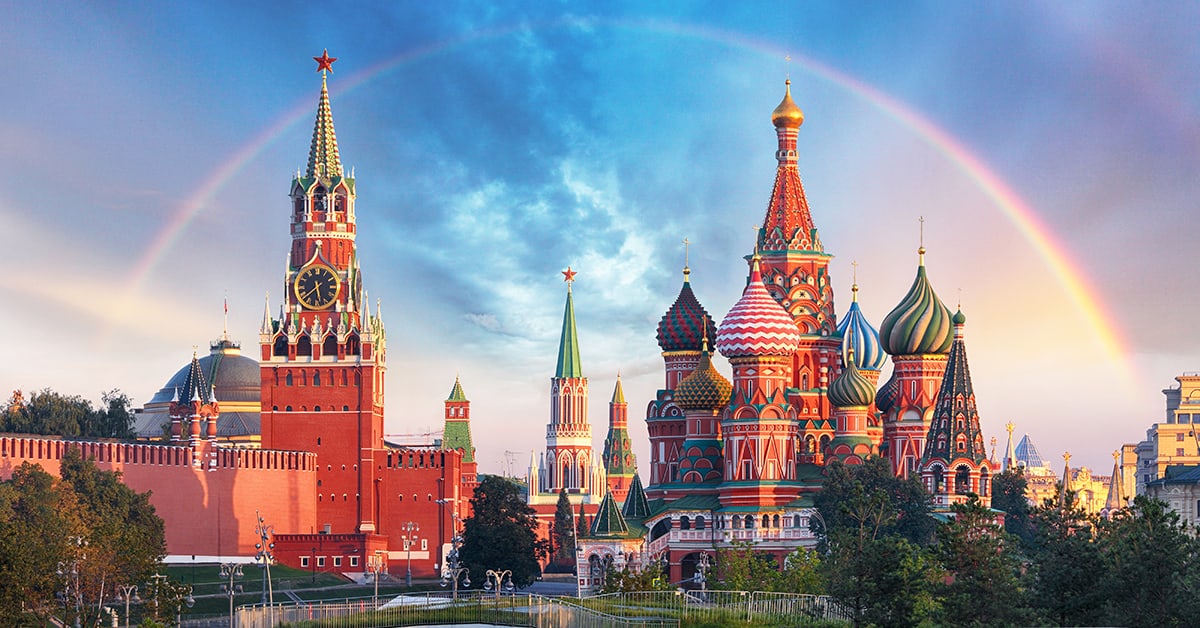Western sanctionshave failed to harm Russia's economy enough to stop the war, and the country's good-faith efforts to repay international investors may win sympathy for a new global financial order.

As the West continues to punish Russia economically, many are wondering whether these efforts can stop Vladimir Putin’s war machine. In the early phase of the war in Ukraine, the ruble lost almost half its value and there were reports of empty supermarket shelves. Photos of Russians queuing to withdraw money from ATM machines circulated on social media as the reality of life under wide-ranging economic sanctions set in.
But with the conflict now in its fifth month and showing no signs of slowing, Russia’s economy has withstood the unprecedented sanctions better than expected.
“In Russia, there has been some economic pain, but the sanctions have not been as quick and impactful as some expected at the start,” says Cvete Koneska, who leads London-based security intelligence firm Dragonfly’s global advisory practice. “The question is: Can we find other ways to make sure Russia stops the war?” Koneska says there needs to be more dialogue with non-EU and NATO countries as Western economic sanctions can only achieve so much.
Thanks to swift action by the Russian central bank—including capital controls and a substantial hike in interest rates—the ruble largely recovered the losses from during the initial invasion. Furthermore, surging oil and gas revenues are pouring into government coffers. Moscow’s June default on international debt obligations was the first such foreign-bond default since 1918—more than 100 years—but seems not to have changed much on the ground for Russia, at least not at this stage.
A Default Like No Other
Usually, when a country defaults on international debt obligations it is a sign of a weakening economy. But Russia was making a good-faith effort to service its bonds when it technically defaulted on June 26, blocked from transferring the funds because its National Settlement Depository is under EU sanctions.
“Moscow argues that it’s not really in default, as it’s trying to make repayment,” says Gerard DiPappio, a senior fellow in the Economics Program at the Center for Strategic and International Studies (CSIS) in Washington D.C. “In general, this is likely to matter to future investors in Russian bonds, as the default is more technical/forced rather than a sign of Moscow’s unwillingness to make payment. Future investors will of course care about geopolitical risks, and the potential for renewed sanctions might push up Russia’s borrowing costs. But that’s more a function of the sanctions than the default per se.”
DiPappio estimates that Russia only has approximately $20 billion in foreign-currency Eurobonds, which is quite small relative to the total emerging market bond universe. “Russia does not have large foreign debts,” he explains. “Part of Moscow’s ‘fortress Russia’ strategy after 2014 was to minimize government debt and maximize reserves.”
Longer term, the question is whether the technical default could affect Russia’s ability to borrow externally from other countries bilaterally (which is unlikely, but possible) or even whether it will be able to return to international bond markets after the war or whenever sanctions are lifted. But given that Russia continues to export close to $1 billion per day in oil and gas, about half of which flows directly into Moscow’s coffers as government revenue, it doesn’t have an urgent need at this point to borrow from international debt markets.
“Moscow has been adding to its reserve funds, not depleting them,” says DiPappio. “Those revenues would need to decline substantially (probably requiring some energy market disruption) to swing Russia’s finances into deeply negative territory. If that happened, Russia would still have its roughly $200 billion reserve fund, probably at least half of which is accessible.”
A Russian-Led Economic Bloc?
Russia’s friendly/neutral partners in the developing world, specifically China and India, are unlikely to care about the default. “Russia is relying on them as marginal buyers of its oil,” DiPappio explains. “Going forward, Russia will particularly rely on China as a source of second-best industrial/tech goods as substitutes for goods under sanctions.”
What we usually see with cases of sovereign defaults we are unlikely to see with Russia. However, Koneska says there could be bigger changes afoot due to a new understanding of geopolitical risks, and changes in the world financial system sparked by response to Russia’s invasion of Ukraine and the international response. “Based on the rhetoric coming out of Russia,” says Koneska, “I get a sense of a kind of rejection of how the international financial system works, and a feeling that the system is set up unjustly for Russia, so they need to create a different one if they are to continue trading on terms that seem fair to them.”
In order to diverge from existing trade and financial systems, Koneska says at some point in the future Russia could set up its own economic and trading bloc with countries like India, Iran, China, and the CIS countries, which are sympathetic to its plight. “It would not be easy,” she says, “but it could be the start of many new [economic] centers that may take shape in future.”



